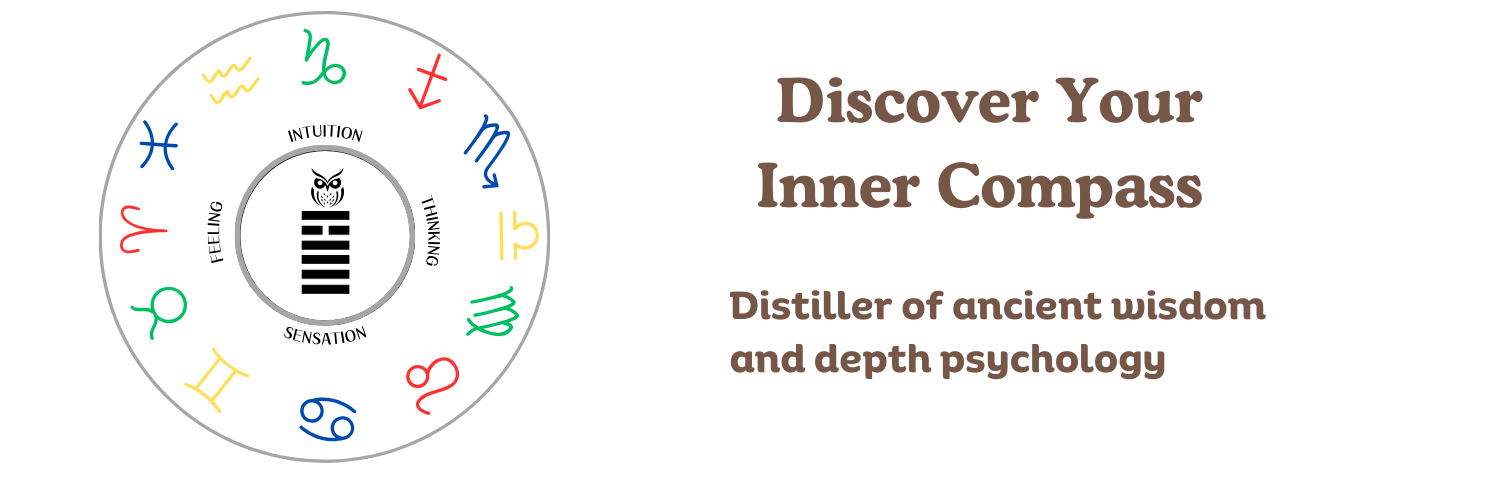The best way to determine your personality type is on your own through daily observations.
Eugene Pascal, in his book Jung to Live By, recommends starting by determining your inferior function: “Since it is the inferior function that always fouls up our daily life, simply observe if you fail most in perceiving reality via sensation or intuition or in evaluating reality via thinking or feeling.” He then provides questions to ponder, which I have summarized below. Keep in mind these are very broad and are meant to help you get in the general vicinity of your type:
- Do others tell you that you do not perceive objective reality very well? That you miss the obvious? That you are a dreamer? That you always show up late for appointments, if at all? If so, your sensation function is causing you trouble and you are probably an intuitive type (INFJ, INTJ, ENFP, and ENTP).
- Do others accuse you of not being able to read between the lines, of not being able to see behind the facades people present to you, of taking everything literally or of being gullible, than you are most likely a sensation type (ISTJ, ISFJ, ESTP, ESFP).
- Do others accuse you of putting your foot in your mouth and saying inappropriate things? Of being cold and of being staunchly moral but unethical? Then you are probably a thinking type (INTP, ISTP, ENTJ, ESTJ).
- Are you hopeless at making logical inferences, are a bad mathematician, misinterpret other people’s intentions and motivations and gush effusively at everything that happens outwardly or inwardly, or if you keep the gushing all bottled up, you are probably a feeling type (INFP, ISFP, ESFJ, ENFJ).
For more about the inferior function, I recommend Lectures on Jung’s Typology by Marie-Louise von Franz and James Hillman. Naomi Quenk’s books are excellent too.
Once you have the inferior function type determined, you can narrow it down a little more by determining if you are J or P. Carol Shumane, author of my favorite typology book, Projection and Personality Development via the Eight-Function Model, which clearly explains John Beebe’s 8 function model, says that it is actually difficult to determine if one is primarily extraverted or introverted. Therefore she advises by starting out to determine if you are J or P, as that is easiest to identify:
- Select J or P in your type code. To do this, consider two questions:
Did you appear organized or messy during your childhood?
Do you like to have structure and plans (J), or do you have a strong need for freedom from constraints (P)?
This narrows it down to either a P or J type. Table 1 in the book goes into more detail and provides visual clues as well. The P functions are extraverted sensation (Se), extraverted intuition (Ne), introverted thinking (Ti) and introverted thinking (Fi). The J functions arer introverted sensation (Si), introverted intuition (Ni), extraverted thinking (Te), and extraverted feeling (Fe). She instructs you to choose your top two functions from all eight.
The appendixes in the back of the book with tables showing how each function displays itself in each of the 8 function roles, and the 16 type profiles, are worth the price of the book.
To further refine your observations about your type to help determine which of the 16 types might be the best fit, I recommend my post on journal prompts to use on a daily basis.
Jungian analyst Thomas Patrick Lavin recommends re-evaluating your type once a year, to see if the energy flow has changed. I think that is a great idea. Most of us are not an exact type, and it fluctuates throughout life.
I’ll close with a quote from Shumate about why it is worth discovering your type and the type of others:
“We judge others through the filter of our own psychological type. Knowledge of psychological type enables an understanding that some personality types are in constant motion whereas others tend to be still, that some types are verbose and others untalkative, that some types have a flat affect and others are animated. Jung’s type system saves us from the error of attributing such personality characteristics to grief or remorse, or to guilt or innocence. It helps us distinguish the core self from the mask of personality. [Emphasis mine]
Shumate also says: The result of [Jung’s] effort, Psychological Types, succeeded to the extent that it has been called “the world’s greatest treatise on tolerance” by Jungian analyst Rafael López-Pedraza.” [Emphasis mine]
